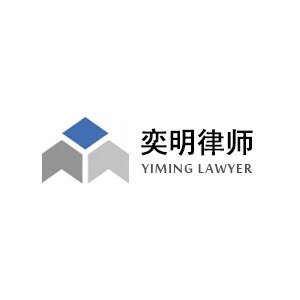Best Constitutional Law Lawyers in Beijing
Share your needs with us, get contacted by law firms.
Free. Takes 2 min.
List of the best lawyers in Beijing, China
About Constitutional Law in Beijing, China
Constitutional Law in Beijing, China, broadly involves the study and application of the Constitution of the People's Republic of China, along with its amendments and related legislative principles. The Constitution is the country's supreme legal document and sets forth fundamental principles regarding the state's structure, citizens' fundamental rights - such as freedom of speech, religion, and privacy - and governmental powers and duties. As the capital city, Beijing plays a significant role in the interpretation and implementation of these constitutional principles, often serving as the hub for legislative and judicial processes in China.
Why You May Need a Lawyer
Individuals may seek legal help in the field of Constitutional Law for various reasons. Common situations include challenges to governmental actions or policies that may infringe upon constitutional rights, such as freedom of expression or protection from discrimination. Additionally, businesses and individuals might require assistance navigating the constitutional implications of registering organizations or handling issues related to intellectual property or media law. Legal expertise is often necessary for understanding complex constitutional procedures and ensuring compliance with national legislation.
Local Laws Overview
The Constitution of the People's Republic of China forms the foundation for all other laws and policies in Beijing. Key aspects relevant to constitutional law include the protection of individual freedoms, the rule of law, public governance structures, and the processes for constitutional amendments. The National People’s Congress is the central legislative body that enacts laws and performs constitutional oversight. In Beijing, as elsewhere in China, constitutional interpretation can be intricate due to the socialist legal framework, which emphasizes collective rights and societal harmony alongside individual privileges.
Frequently Asked Questions
What is the role of the Constitution in China?
The Constitution of China serves as the nation's supreme legal authority, establishing the foundation for rights, governance, the legislative framework, and public policy.
Can I challenge the constitutionality of a law in China?
Direct constitutional challenges by individuals are not commonly entertained. The process for reviewing and amending laws fall under the National People’s Congress and its Standing Committee.
How are constitutional rights enforced in China?
Enforcement of constitutional rights is managed through legislative and judicial bodies, but there isn't a dedicated constitutional court like in some other countries. Enforcement tends to be less individualistic and more policy-oriented.
What protections are offered under China's Constitution?
The Constitution outlines protections such as equality for all citizens, legal rights to political participation, and certain economic and cultural rights, among others.
How does freedom of expression work under Chinese Constitutional Law?
The Chinese Constitution protects freedom of expression, but this right is often balanced against other legal and social factors like public security and social stability.
Can foreigners claim constitutional rights in China?
While foreigners may not have the same scope of rights as citizens, they are entitled to certain protections under Chinese law, especially in legal and contractual matters.
Is there judicial review in China's constitutional system?
Judicial review exists but is more limited compared to countries with a clear separation of powers. The Chinese legal system emphasizes legislative oversight over judicial intervention in constitutional matters.
What should I do if I believe my constitutional rights are violated?
Seek legal advice from a professional well-versed in Chinese constitutional law and consider working with organizations that specialize in civil rights and legal services.
Are there constitutional amendments in China?
Yes, constitutional amendments occur, usually proposed by the Communist Party to adapt to new social or economic realities. The National People's Congress is responsible for ratifying them.
How does the concept of “socialist rule of law” influence constitutional law?
This concept emphasizes harmonizing governance with socialist principles, often prioritizing collective well-being alongside personal liberties and emphasizing the role of the Communist Party in legal interpretation.
Additional Resources
For those seeking legal advice in Constitutional Law in Beijing, the following resources and organizations may be beneficial:
- The Constitutional and Administrative Law Society of China, offering guidance and legal resources.
- China University of Political Science and Law - Faculty of Constitutional and Administrative Law provides scholastic insights.
- The Beijing Bar Association - members can assist with legal representation and advice.
- Local Legal Aid Centers, which provide resources for those facing legal challenges.
- Administrative offices of the National People's Congress, where official documentation and legislative updates are available.
Next Steps
If you require legal assistance in Constitutional Law, consider taking the following steps:
- Consult with a qualified attorney specialized in Constitutional Law for personalized advice and evaluation.
- Seek referrals from reputable sources such as embassies, universities, or professional organizations.
- Research any legal aid services or public interest law firms that might offer support for your specific type of case.
- Arrange a preliminary consultation to discuss your situation, potential strategies, and understand legal fees involved.
- Gather all relevant documentation and information to present an organized case history to your lawyer.
Legal matters related to Constitutional Law can be complex, so it's vital to seek out qualified professionals who can guide you through China's unique legal landscape.
Lawzana helps you find the best lawyers and law firms in Beijing through a curated and pre-screened list of qualified legal professionals. Our platform offers rankings and detailed profiles of attorneys and law firms, allowing you to compare based on practice areas, including Constitutional Law, experience, and client feedback.
Each profile includes a description of the firm's areas of practice, client reviews, team members and partners, year of establishment, spoken languages, office locations, contact information, social media presence, and any published articles or resources. Most firms on our platform speak English and are experienced in both local and international legal matters.
Get a quote from top-rated law firms in Beijing, China — quickly, securely, and without unnecessary hassle.
Disclaimer:
The information provided on this page is for general informational purposes only and does not constitute legal advice. While we strive to ensure the accuracy and relevance of the content, legal information may change over time, and interpretations of the law can vary. You should always consult with a qualified legal professional for advice specific to your situation.
We disclaim all liability for actions taken or not taken based on the content of this page. If you believe any information is incorrect or outdated, please contact us, and we will review and update it where appropriate.









